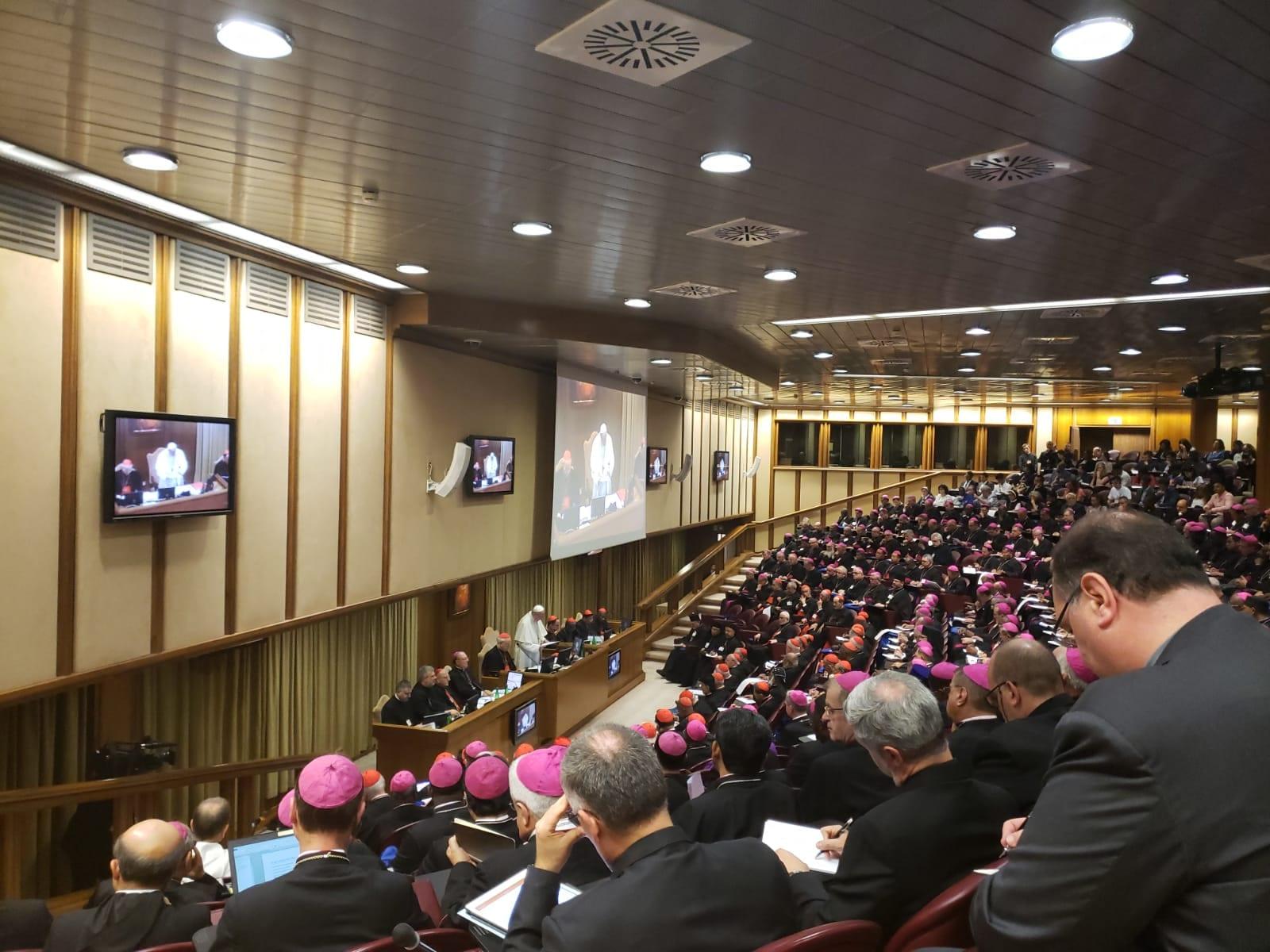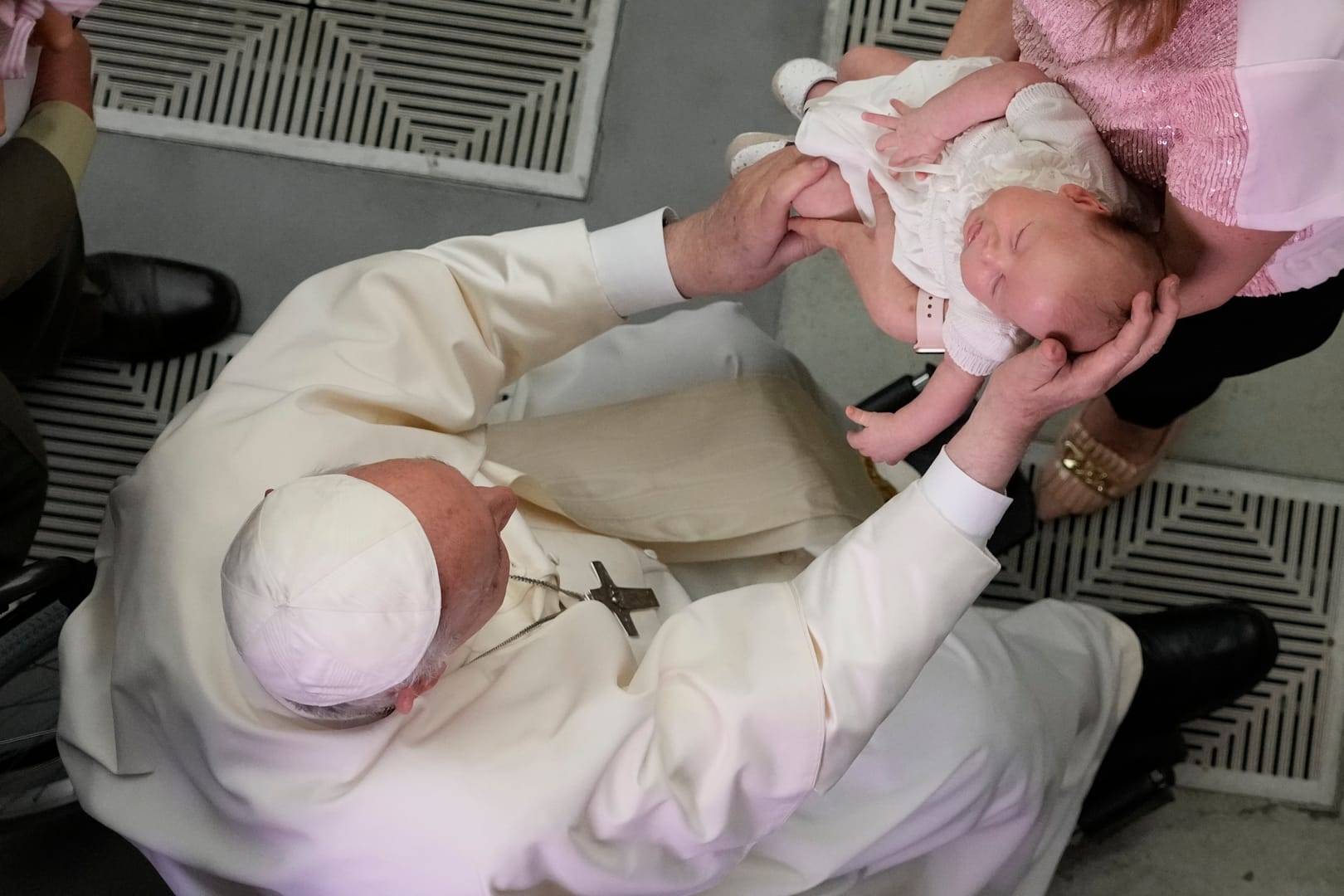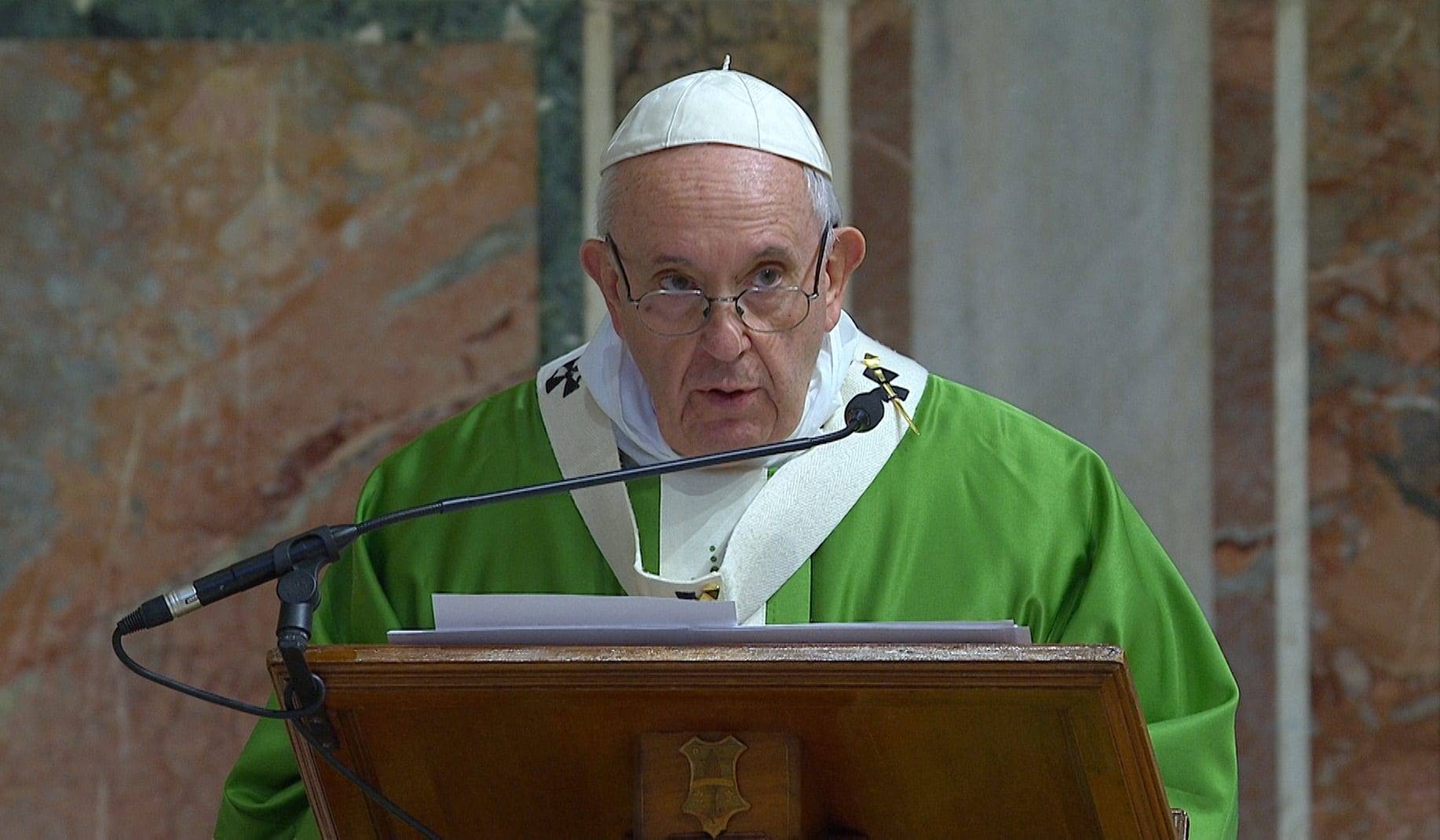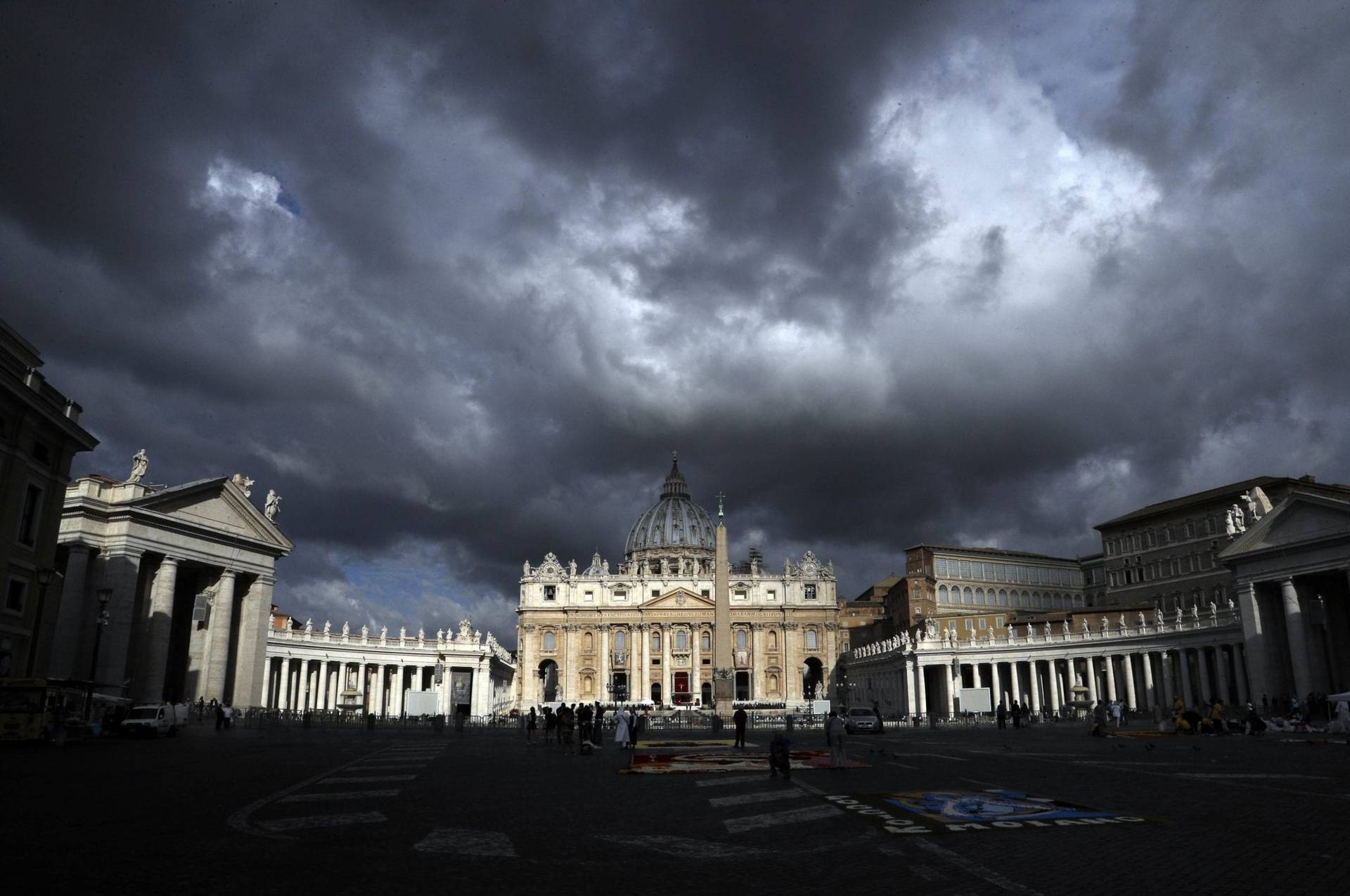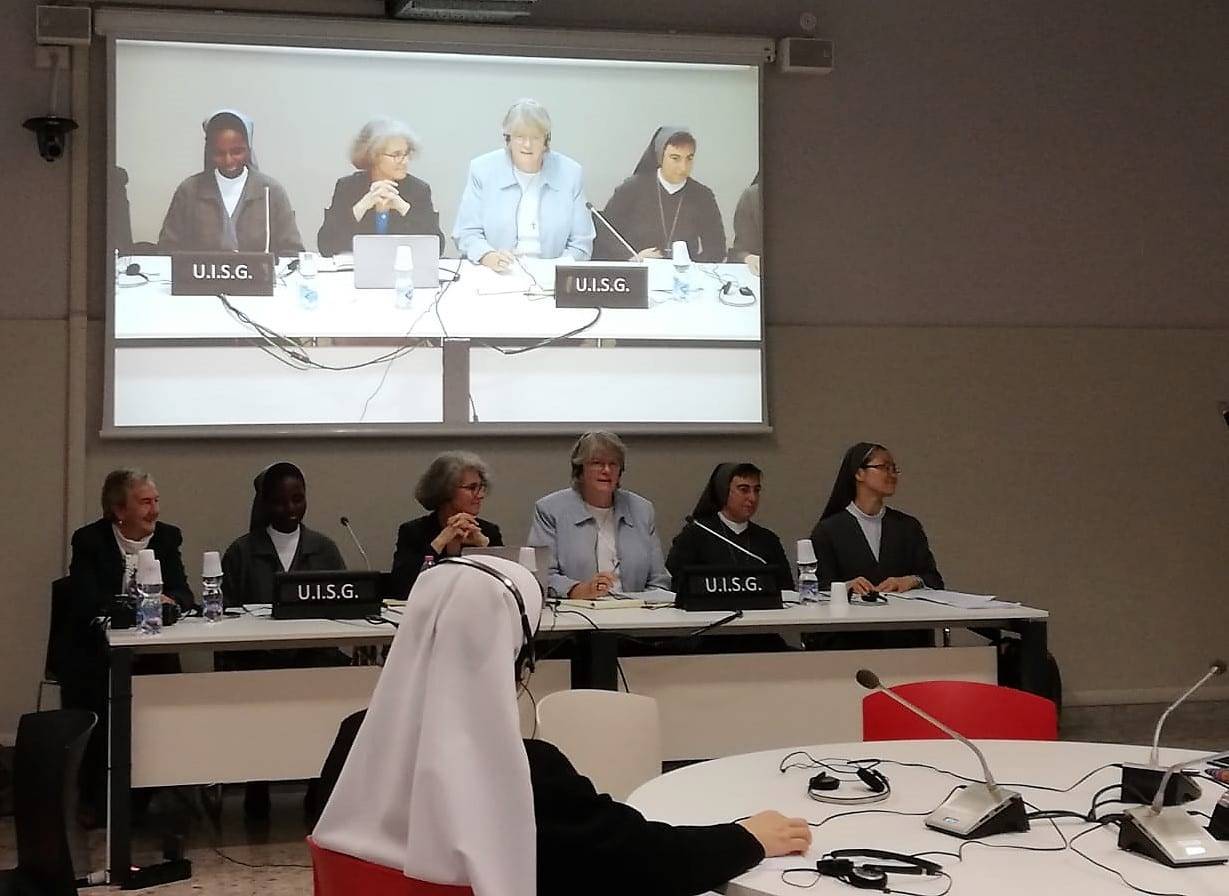ROME – Speaking to a room full of bishops but just over 30 young people, Pope Francis said that an Oct. 3-28 summit of prelates from around the world on “young people, faith and vocational discernment” is not to “undermine” youth but rather “to show that they are right to wager: [Engaging the Church in dialogue] truly is worth the effort, it is not a waste of time!”
Opening the Synod of Bishops, the pontiff called the 300-some bishops to “leave behind prejudice and stereotypes” and to be able to listen to what young people have to say, establishing an intergenerational dialogue. His words came after opening prayers.
As a reminder of the tensions surrounding the synod, as Francis walked into the meeting hall chants floated through the air from a protest being staged nearby by a group of women, who were shouting: “Let women vote!”
Once inside, Francis called on participants to be courageous and to speak up and listen to one another. He particularly urged the 34 young people participating to speak up, asking them to be the voices of those who are not present.
“The first fruit of this dialogue is that everyone is open to newness, to change their opinions thanks to what they have heard from others,” Francis said.
Francis said that he was thankful to those young people who’ve “made their voices heard” during the two-year process that has led to the Oct. 3-28 gathering in Rome.
“I thank them for having wagered that it is worth the effort to feel part of the Church, or to enter into dialogue with her; worth the effort to have the Church as a mother, as a teacher, as a home, as a family, and, despite human weaknesses and difficulties, capable of radiating and conveying Christ’s timeless message; worth the effort to hold onto the boat of the Church which, despite the world’s cruel storms, continues to offer shelter and hospitality to everyone; worth the effort to listen to one another; worth the effort to swim against the tide and be bound by lofty values [such as] family, fidelity, love, faith, sacrifice, service, eternal life.”
The pontiff’s words come only days after he acknowledged, during his trip to the Baltics, that young people often don’t listen to the Church due to scandals and the Church’s failures to address them.
He superficially touched on the same theme again on Wednesday, when he said that at the present moment, the Church “appears to be laden with struggles, problems, burdens.”
Despite those challenges, Francis said, “the future is not a threat to be feared but is the time the Lord promises us when we will be able to experience communion with him, with our brothers and sisters, and with the whole of creation.”
The gathering of bishops, Francis said, has the opportunity to “be a sign of a Church that really listens, that allows herself to be questioned by the experiences of those she meets, and who does not always have a ready-made answer.”
Francis insisted on dialogue between young and old, saying that even though the synod is to be focused on the youth, young people should not “spurn [the elderly], reject them, isolate or snub them.”
To neglect the experience of the previous generations, he said, is an act of “self-destruction.”
Hence, he said, a two-fold solution is needed, one directed mostly to the “elderly” in the room and one to the youth, inside and outside the Synod Hall.
On the one hand, the bishops have to “decisively overcome the scourge of clericalism,” and leave stereotypes aside as an antidote to it. Clericalism, he said, leads some to believe that they have all the answers and no longer need to listen.
“Clericalism is a perversion and the root of many evils in the Church: we must humbly ask forgiveness for this and above all create the conditions so that it is not repeated,” he said.
On the other hand, Francis said, young people need to be cured from the “virus of self-sufficiency and of hasty conclusions.”
“The accumulation of human experiences throughout history is the most precious and trustworthy treasure that one generation inherits from another,” he said, saying it should be absorbed “without ever forgetting divine revelation, which enlightens and gives meaning to history and to our existence.”
Francis also said that the synod is a process of “discernment,” and he urged bishops to consider the remarks each has prepared as “drafts,” open to be changed as the discussion progresses.
Discernment, he said, “is not an advertising slogan, it is not an organizational technique, or a fad of this pontificate, but an interior attitude rooted in an act of faith.” Instead, it’s a method based on the conviction that “God is at work in world history.”
Though he once famously said that he doesn’t watch the news or read the papers outside of an Italian one, Francis seemed to know that outside the walls of the synod hall, people will be paying attention.
“Do not let yourselves be tempted, therefore, by the ‘prophets of doom’,” Francis said, urging participants to keep their gazes fixed on the good that “often makes no sound; it is neither a topic for blogs, nor front page news,” and not to be afraid “before the wounds of Christ’s flesh, always inflicted by sin and often by the children of the Church.”
The synod, Francis said, should be a work of spending “time with the future,” so that it produces more than a document “that generally is only read by a few and criticized by many,” and offers concrete pastoral proposals.
The “criticism” line may have been a reference to his 2016 document Amoris Laetitia after two synods on the family in 2014 and 2015, which triggered wide debate over its cautious opening to communion for Catholics who divorce and remarry outside the Church.
In other words, the pontiff said, he wants for the synod to offer “a vision of the future filled with the joy of the Gospel.”
